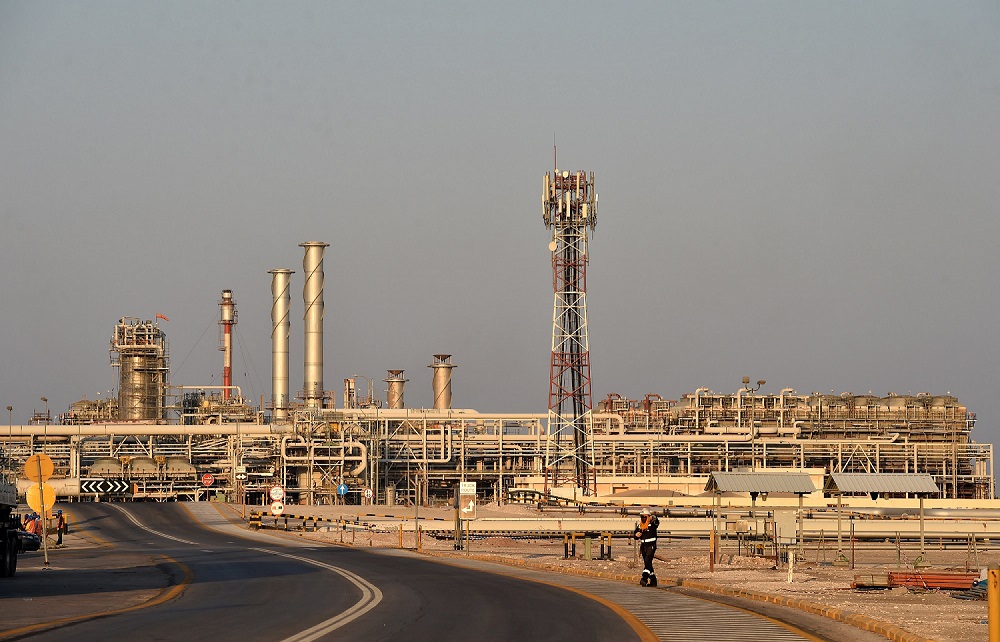
- ARAB NEWS
- 18 Jul 2025

That was a week the oil industry will want to forget, but there is little chance energy policymakers will be allowed to do so. The “perfect storm” of negative forces on the global crude benchmarks looks set to continue blowing for the foreseeable future.
Next week, Saudi Aramco, the biggest oil exporter in the world, will hold its first-ever investor briefing. The agenda will include the performance in the first half of 2019, the prospects for the long-awaited initial public offering of shares, and progress on the transformational merger with Sabic.
But the plummeting oil price, and what measures Aramco can take to halt its slide, will probably be question number one on participants’ minds.
There will be good news from Aramco in most areas. Chief Executive Amin Nasser will be able to demonstrate with cold hard numbers how profitable the Saudi oil giant is, even in a turbulent time in the energy industry, and will probably highlight the fact that the integration of Sabic is virtually completed — a vital step toward the IPO.
But the oil price is outside even his control. Since the middle of July it has shed roughly 20 percent — Brent crude stood at $57 per barrel (ch) yesterday — and some of the most bearish voices in the industry believe it could fall still further, even as far as $30 in a worst-case scenario, according to analysts at Bank of America Merrill Lynch.
Geopolitics is the main reason. The latest salvos in the US-China trade war — with Washington imposing more sanctions and Beijing allowing its currency to fall further on forex markets — scared the life out of oil markets, and with good reason.
Traders see the latest threat to world trade as a big negative for global economic growth. There are already significant signs that the two-year confrontation between America and China is impacting world growth forecasts, and any downturn in industrial production means less demand for oil.
The prospect of falling demand — the International Energy Agency downgraded its forecasts for the rest of 2019 — is the big factor behind recent oil price falls.
The fear that US-China confrontations, until now largely confined to a barrage of tariffs on trade between the two countries, could spill over into forex markets especially spooked oil markets. A wakening renminbi means a stronger dollar, which traditionally puts downward pressure on dollar-priced crude prices.
Rising regional tensions in the Gulf also played a big part. Normally, any threats to regional security would lift the oil price, as traders begin to worry about security of supply through the Strait of Hormuz.
But this time there is so much crude on world markets that prices failed to react to further aggressive actions by the Iranians in the Gulf seaways. In fact, the possibility that China could escalate its confrontation with the US by buying more Iranian oil — in defiance of American sanctions — was another big downward pressure.
The world has all the oil it wants in current circumstances. The American shale industry, having already made the US self-sufficient and a major exporter, shows no sign of slowing, though some experts believe it must eventually hit a financial or geological barrier.
In the face of this perfect storm of economic, geopolitical and supply worries, the options of any one producer, even one as big as Saudi Arabia, are limited.
The Kingdom, as the biggest exporter in OPEC, has already done more than its share to reduce supply, and in partnership with Russia, the biggest global oil producer, continues to reduce its output.
But any further unilateral reductions would weaken the domestic Saudi economy, still dominated by energy revenue despite diversification strategies — as are virtually all Gulf economies.
So the outlook for oil markets is bleak. The big producers, led by Saudi Arabia and Russia, will probably have to grin and bear it until such time as the global economic and geopolitical storms abate.
The problem is nobody is confident that will happen any time soon.
Frank Kane is an award-winning business journalist based in Dubai. Twitter: @frankkanedubai
https://www.arabnews.com/node/1537586